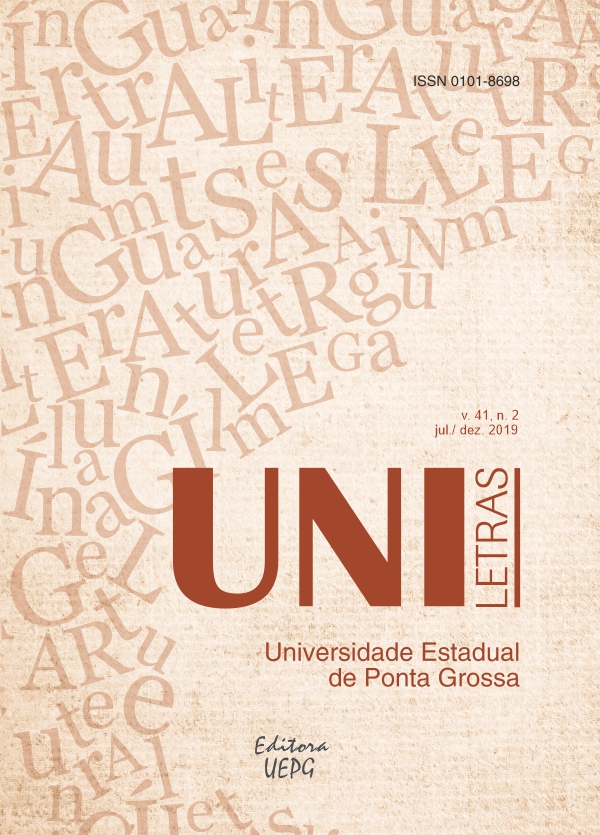RACE, GENDER AND SEXUALITY IDENTITIES IN ENGLISH LANGUAGE EDUCATION / LEARNING: SUGGESTED ACTIVITIES
Abstract
This article will reflect about teaching / learning of the English Language as a tool of questioning social practices, with approaches to race, gender and sexuality identities. Aiming to analyze how students can learn the English Language, and at the same time provide (de)construc to the identities of race, gender and sexuality. Considering the following research questions: How can the English Language be used as a questioning tool for social practices? And, what kind of activities can be inserted, in English Language classes, that can give opportunity of (de) construction the race, gender and sexuality identities? For this, I use the theoretical framework of Ferreira (2015), Louro (2013), Butler, (2010), Melo (2015), Moita Lopes (2003). Addressing the methodology of qualitative research, ethnographic type developed in the year 2017. Where data generation occurred through focus group interviews, in a State College of Paraná, through the use of the videos: "Vista minha Pele", "Acorda Raimundo” and “ Novamente Homofobia na Escola”. The results show that race, gender and sexuality identities are targets of racism, prejudice, chauvinism and homophobia in the classroom. In which, it also contributes to school failure. Thus, the conclusions point for needing of including such identities in the school curriculum, mainly in the process of teaching / learning English Language.
Keywords: Race Identities; Gender identities; Sexuality identities; English Language;
This article will reflect about teaching / learning of the English Language as a tool of questioning social practices, with approaches to race, gender and sexuality identities. Aiming to analyze how students can learn the English Language, and at the same time provide (de)construc to the identities of race, gender and sexuality. Considering the following research questions: How can the English Language be used as a questioning tool for social practices? And, what kind of activities can be inserted, in English Language classes, that can give opportunity of (de) construction the race, gender and sexuality identities? For this, I use the theoretical framework of Ferreira (2015), Louro (2013), Butler, (2010), Melo (2015), Moita Lopes (2003). Addressing the methodology of qualitative research, ethnographic type developed in the year 2017. Where data generation occurred through focus group interviews, in a State College of Paraná, through the use of the videos: "Vista minha Pele", "Acorda Raimundo” and “ Novamente Homofobia na Escola”. The results show that race, gender and sexuality identities are targets of racism, prejudice, chauvinism and homophobia in the classroom. In which, it also contributes to school failure. Thus, the conclusions point for needing of including such identities in the school curriculum, mainly in the process of teaching / learning English Language.
Keywords: Race Identities; Gender identities; Sexuality identities; English Language;
Downloads
Downloads
Published
Issue
Section
License
Authors that publish in the journal agree with the following terms:
a) The authors keep the copyright and grant to the journal the rights of the first publication, with the work simultaneously being licensed under the Creative Commons Attribution License that allows the sharing of the work with the recognition both of the authorship and the initial publication in this journal.
b) This journal provides immediate public access to all of its content, following the principle that making scientific knowledge freely available to the public provides greater worldwide democratization of knowledge. For more information about this approach, visit Public Knowledge Project, a Project that developed this system to improve the academic and public quality of research, distributing OJS as well as other softwares to support the publication system to public/open access to academic sources. Names and e-mail addresses in this website will be used exclusively for this journal purposes, not being available for other ends.

This work is licensed under a Creative Commons Attribution 4.0 International License.





